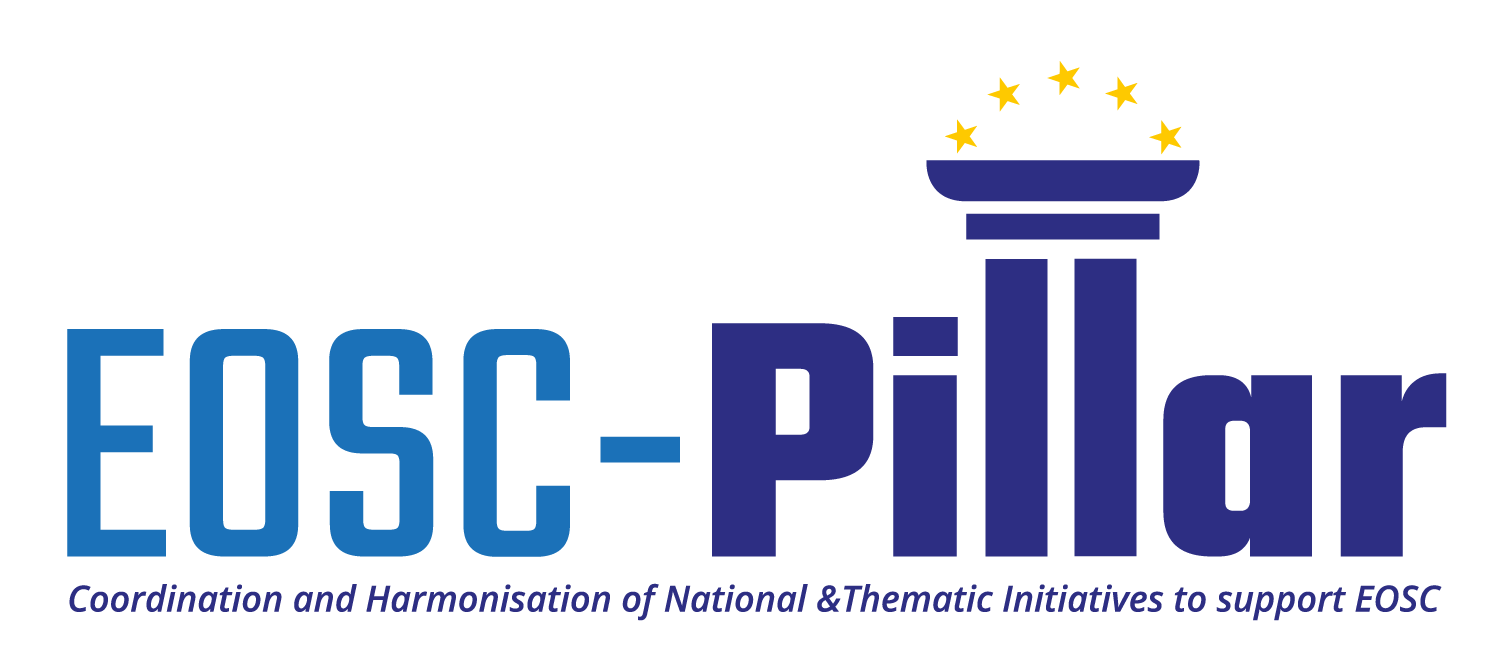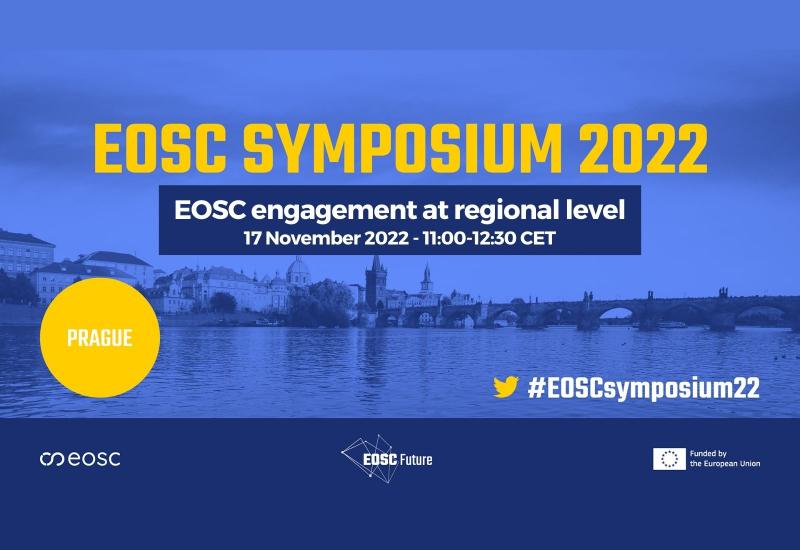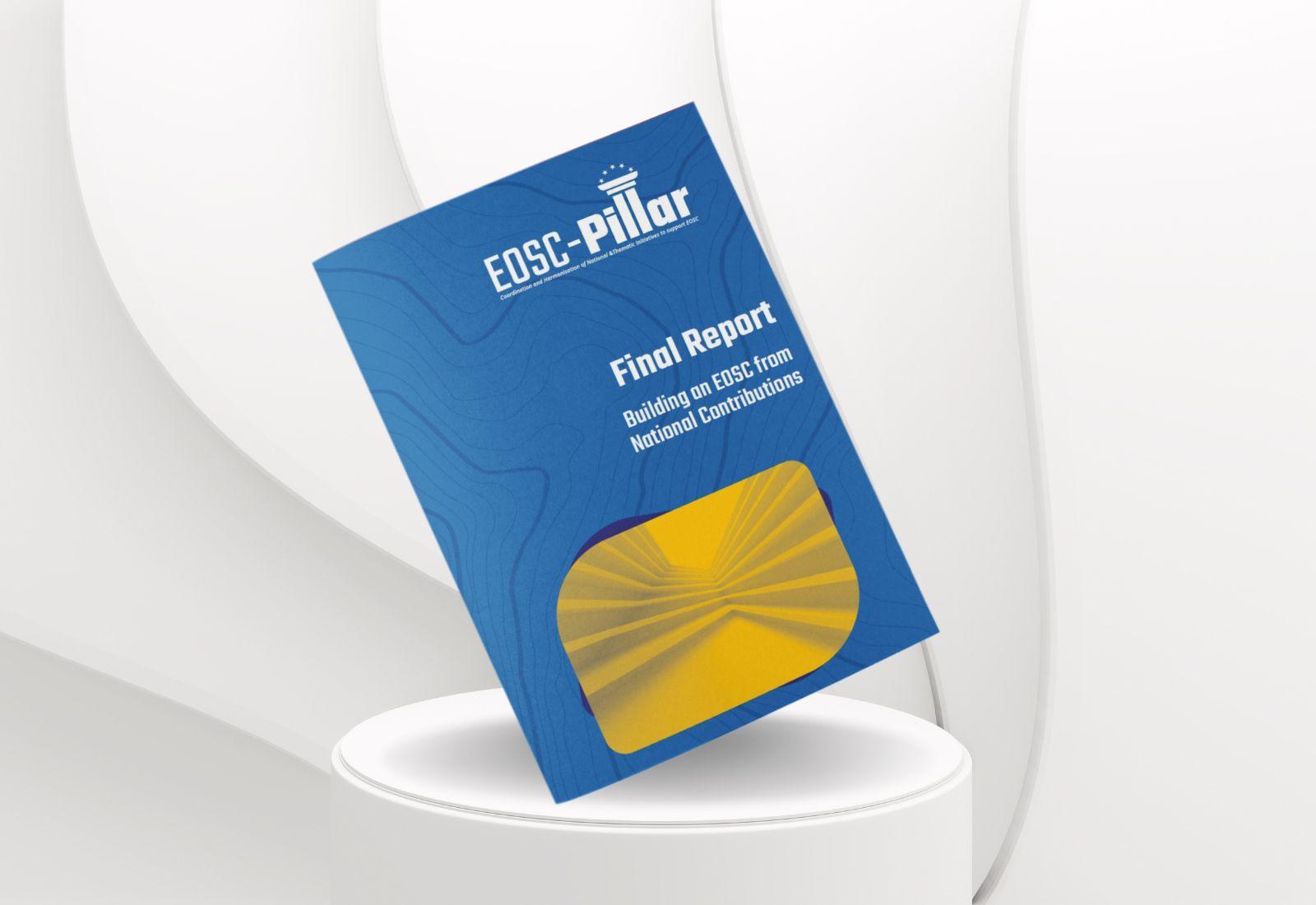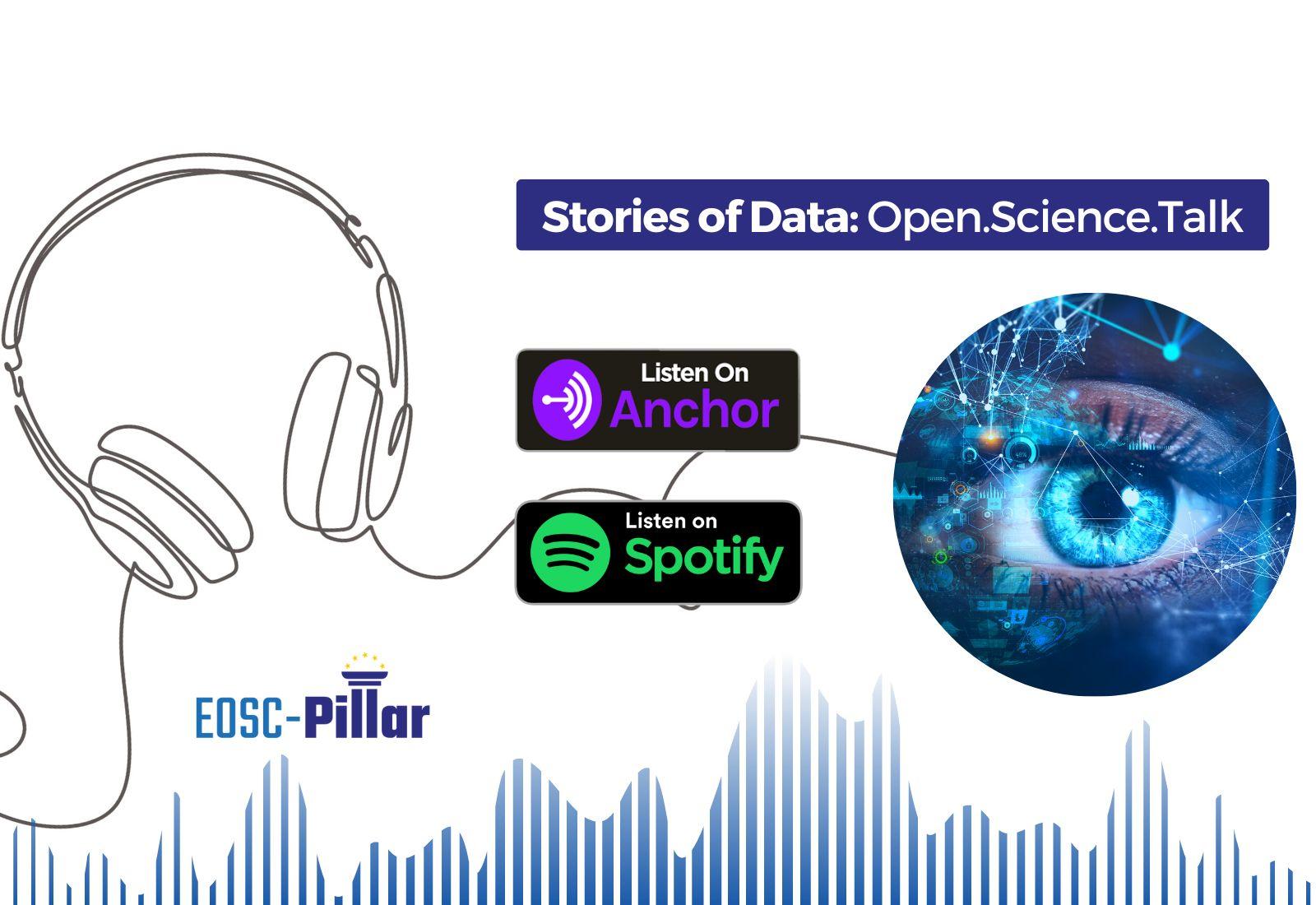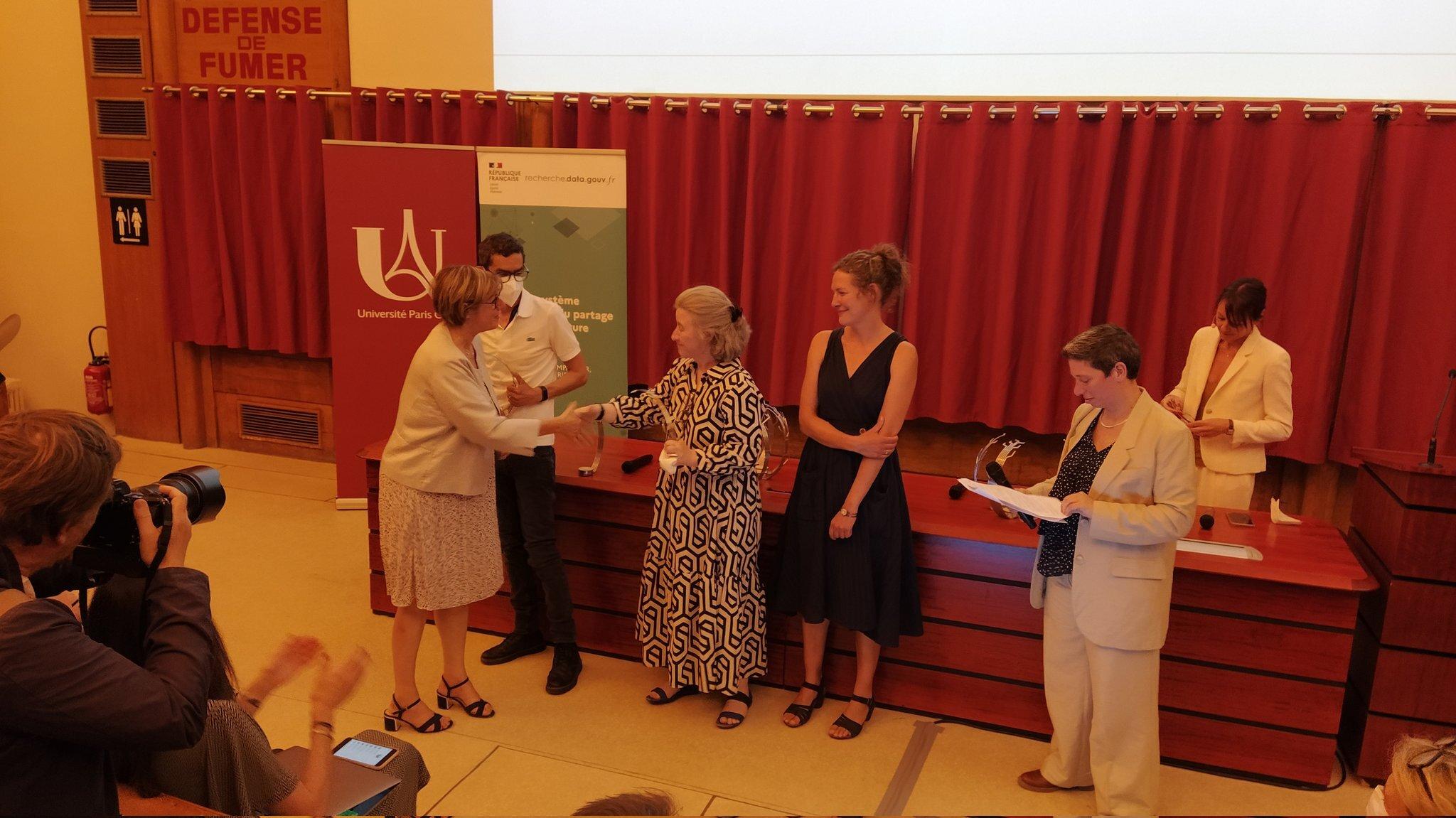
EOSC & open science in Belgium: An interview with Bart Dumolyn
April
24,
2020
News
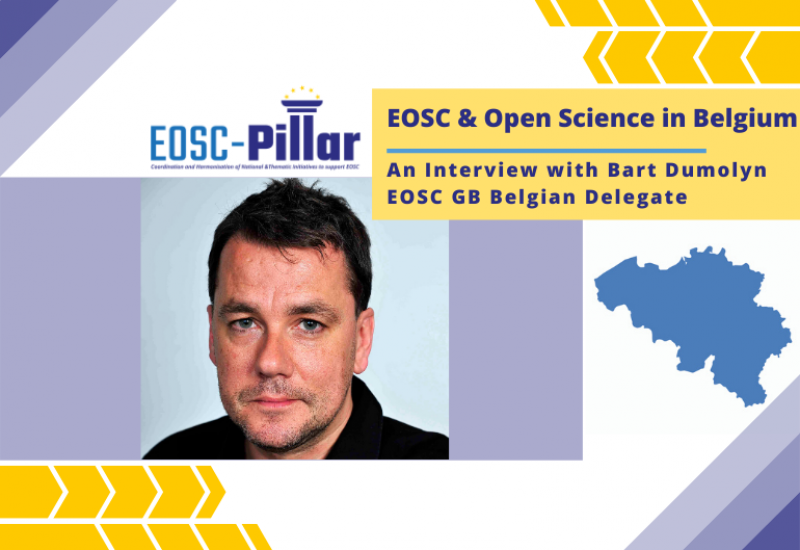
National landscapes are crucial for the successful development and implementation of the European Open Science Cloud, this is why the EOSC Governance Board plays a key role in the long-term mission of all EOSC-related projects.
As EOSC-Pillar coordinates harmonisation and cooperation across Austria, Belgium, France, Germany, and Italy, hearing directly from the country delegates is a great way to learn more about what the current situation is in each of these Member States. After our first interview with the Austrian Delegate Stefan Hanslik, this time we had the chance to exchange a few lines with the Belgian Delegate Bart Dumolyn, from the Department of Economy, Science and Innovation Flemish Government.
- Why should national open science initiatives get involved with the development of EOSC in this stage?
EOSC is a driver and an horizon! In the Belgian situation, science policy, and thus also Open Science initiatives are both a regional and a federal competence, “horizontally” and parallel. This means that for federally funded initiatives, the federal government is responsible (BELSPO). These are mostly the Federal Research Institutes, for example the RMI (Royal Meteorological Institute), and various others. For universities, however, the regional governments of Flanders and the FWB (Féderation Wallonie-Bruxelles) are responsible. So you might say that we don’t really have “national initiatives”, but that the landscape is more complicated. However, all Belgian open science policies are coordinated in a special working group “Open Science and Open Innovation” of the Committee For Interfederal and International Cooperation, that also provides input to the delegates in CONOSC, the EOSC Governance Board and the Standing Working Group on Open Science and Open Innovation. Both BELSPO and the regions feel that it is very important to jump on the EOSC wagon as soon as possible.
To foster FAIR awareness and standards, and develop and share expertise at a European scale, it is paramount that MS are involved from the early stage. The advantage for the member states is that awareness is raised, and national / regional initiatives are stimulated. The advantage for the European level is that the compatibility with often diverse national landscapes is assured. Researchers must be allowed to give their opinions and reap the benefits. To enable this, in Belgium we organise systematic information exchange with the stakeholders and for example the experts in the various working groups of the EOSC Executive Board.

- What are the most relevant steps that Belgium has taken in the field of open science?
This is a broad question! For all details, we can of course refer to the ERA Roadmap. But let me summarize the most important actions for our readers.
The Féderation Wallonie-Bruxelles was traditionally at the forefront with an emphasis on Open Access To Publication (the famous “Liege model”), which led to the the 2018 regional decree mandating open access and basing research assessment on deposited documents and the launch in 2019 of an Open Science Working Group with the relevant stakeholders, under the chairmanship of the Ministry. This group is notably in charge of drafting and implementing an Open Science roadmap for the FWB.
At the Flemish level, in December 2019 the Flemish Government has approved of the Flemish Policy Plan on Open Science, and has established the Flemish Open Science Board, granting a recurrent budget of € 5 million to invest in Flemish universities, research institutes and institutes for higher education in order to fulfill the European engagements concerning Open Science in general and specifically the EOSC challenge. The Flemish Open Science Board represents all relevant stakeholders and will advise the Minister and the Department of Economy, Science and Innovation on the next steps, aided by special technical working groups.
At the federal level we have the drafting of Open Access (2017) and Open Data (2019) mandates for BELSPO financed researchers. A national law was established granting researchers rights to secondary publication in Green Open Access. BELSPO has also been setting up a structure for consultations between federated administrative entities dealing with Open Science and has been establishing structural links with bottom-up Open Science advocating organizations and expert field operatives and stakeholders. The federal level, through the aforementioned Belgian special working group “Open Science and Open Innovation” of the Committee For Interfederal and International Cooperation, coordinates the representation in various, official and academic international Open Science fora.
We would also specifically like to mention Openaccess.be, an independent Belgian stakeholders organization, that has been an important driver in Open Science policy since the start, and continues to engage scientists and to promote Open Science and FAIR.
Last but not least, the OpenAIRE National Open Access Desk was paramount in dissemination, and communication of the FAIR principles and the added value of Open Science to the research community.
- What impact is the COVID-19 outbreak having on the open science landscape in Belgium?
We believe that at this time it is still too early to have a definitive statement. But obviously the crisis has renewed interest in Open Access and Open Research Data. The re-orienting of services of certain health institutions' departments to better address data sharing could be observed.
However, although for example the EOSC COVID-19 questionnaire and various other European and International questionnaires, did help raise awareness, one has to realize that in the heat of the battle those particular institutes and researchers that are in the forefront of COVID-19, at this moment obviously lack the time to implement the details of an open science policy. Nevertheless, they all responded to the government’s questions in function of the questionnaires. Other issues like peer review issues, which all play a part in the open science discourse, will have to be addressed in the autumn of this year.
- Are there specific guidelines for service providers? Will there be incentives for those who adopt open science principles and collaborate with the EOSC mission?
At the moment, we have not elaborated on this yet.
- How are national institutions cooperating with the EOSC-Pillar regional project?
There was of course the participation in the “National Initiatives Survey” conducted by EOSC-Pillar, c/o Ghent University Library. We would also like to mention that in 2019 we made the connection between the EOSC Executive Board Working Group on Landscape Analysis, the delegate of the EOSC Governance Board (myself), the aforementioned Belgian working group on Open Science and Open Innovation, bringing together these experts and the stakeholders in both physical meetings, coordinated digital interaction and a public event aimed at the relevant stakeholders. All this to avoid parallel work and to optimise answers and reporting.
- Is Belgium planning any large-scale events or activities specifically dedicated to the EOSC?
We already did! In November 2018 Belgium organized a back-to-back conference with the European Commission. The morning session elaborated on the Flemish, FWB and federal open science policies, and the afternoon session was hosted by the Commission, and presented the work done in the Mutal Learning Exercises on Altmetrics and Rewards.
In November 2019, Belgium organized the conference “Belgian Open Science: EOSC initiatives” which was opened by Michel Schouppe, senior advisor with the Commission on EOSC and Open Science, and Karel Luyben, chair of the EOSC Executive Board. We gathered all Belgian experts in the Working Groups of the EOSC Executive Board to answer questions from the stakeholders.
Due to the pandemic, at this moment we have not actively planned a IRL event, but we are contemplating a digital meeting.
- How can national institutions help connect local entities with the broader scope of the EOSC?
We have to continue communication towards researchers. We would like to quote Marin Dacos, French Open Science advisor: “Leave no one behind”. We have been creating national and regional EOSC-geared structures for enhanced consultation. ESFRI’s and for example the VSC, the Flemish Super Computer Centre are explicitely engaged.
Take a look at the first results of our national initiatives survey, for an overview of the familiarity with EOSC and FAIR data principles in Belgium and the other EOSC-Pillar countries.



